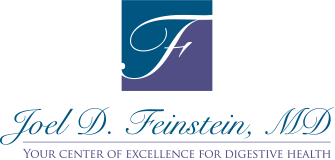Prevention, screening and diagnosis of colorectal cancer
Colorectal cancer is the most preventable major cancer of the body, having a high cure rate if detected at an earlier stage of disease. Nevertheless, colorectal cancer is the second-leading cause of cancer deaths — 60,000 Americans yearly — more than either breast cancer or prostate cancer.
Gastroenterologists play a critical role in the prevention of this disease
Colorectal cancer begins with the development of a polyp. Colon polyps are benign growths that develop in the lining of the colon (large intestine). They are the result of a single genetic mutation and polyps are not associated, in most cases, with any symptoms. In most patients, 95%, they never become cancerous, but the failure to identify and remove these polyps is what can result in a person developing colon cancer.
Warning signs and symptoms
Here are some warning signs and symptoms, though they are not specific for colon cancer.
- Blood in stool or rectal bleeding
- Change in bowel habits (constipation, diarrhea) over a period of weeks or months
- Pencil-thin stools
- Unexplained weight loss
- Lower abdominal pain
Avoiding colon cancer
Colonoscopy is unique in that it is the only test a person can undergo that can prevent a cancer from developing in their body. It is recommended by major health entities — American Cancer Society, U.S. Preventative Task Force, American College of Gastroenterology — that all individuals be screened for colon cancer. Colonoscopy is the best test to detect polyps as well as to perform polyp removal at the same time. Furthermore, colonoscopy also has been shown to reduce the risk of death by detecting cancers at an earlier stage of disease.
Screenings should begin at age 45 for African-Americans and 50 for everyone else. There are high-risk groups in which screening may be recommended in their 30s or 40s.
The colonoscopy examination is performed by using a flexible fiber optic scope that allows a bright image to be seen on a screen. Colonoscopy can now be performed where the patient experiences no pain. The dietary recommendations that Dr. Feinstein uses to prepare the patient allows them not to be hungry. The preparation he recommends is the smallest volume (five ounces) that a patient can very easily use. Combined with his more than 35 years of experience of performing colonoscopy, state-of-the-art equipment and facilities, assures the patient of an easy and quality experience.
Importance of knowing your family history
These are high-risk groups for colon cancer.
- Family history of colon cancer
- Family history of polyps
- Family or personal history of uterine cancer
- Family or personal history of ovarian cancer
- BRCA mutation for breast cancer
- History of ulcerative colitis or Crohn’s disease
A patient's story:
A 41-year-old female presented to my office seven months pregnant for rectal bleeding. Normally, this would be due to hemorrhoids. Unfortunately, in this case, a rectal cancer was found. The baby was subsequently delivered the following month, but unfortunately the cancer had spread and the mother subsequently died. What is unique about this story is that her brother, several years earlier, had undergone a colonoscopy for some indication. At that time, a polyp was discovered and removed. For reasons that were never determined, the woman either never acted on the information or never sought out to have the colonoscopy performed. Had she had this life-saving procedure, a polyp likely would have been discovered, removed and she would not have had this unfortunate outcome.
We are all at risk, some higher. Please get screened. Call for a consultation today.
Our colonoscopy patients come to us from Hollywood, Santa Monica, Sherman Oaks, Los Angeles and Beverly Hills in Los Angeles County, CA. To learn more about colon cancer causes and prevention, call us at 310.652.5021 with your questions about colon cancer treatment, including colon cancer surgery. You can also use our online Request an Appointment form to schedule your one-on-one, personal time with GI doctor Joel Feinstein, MD.





